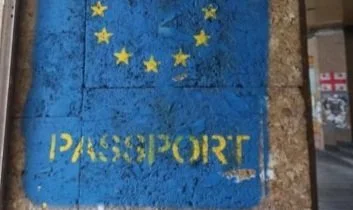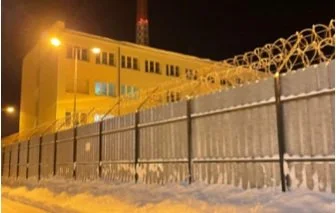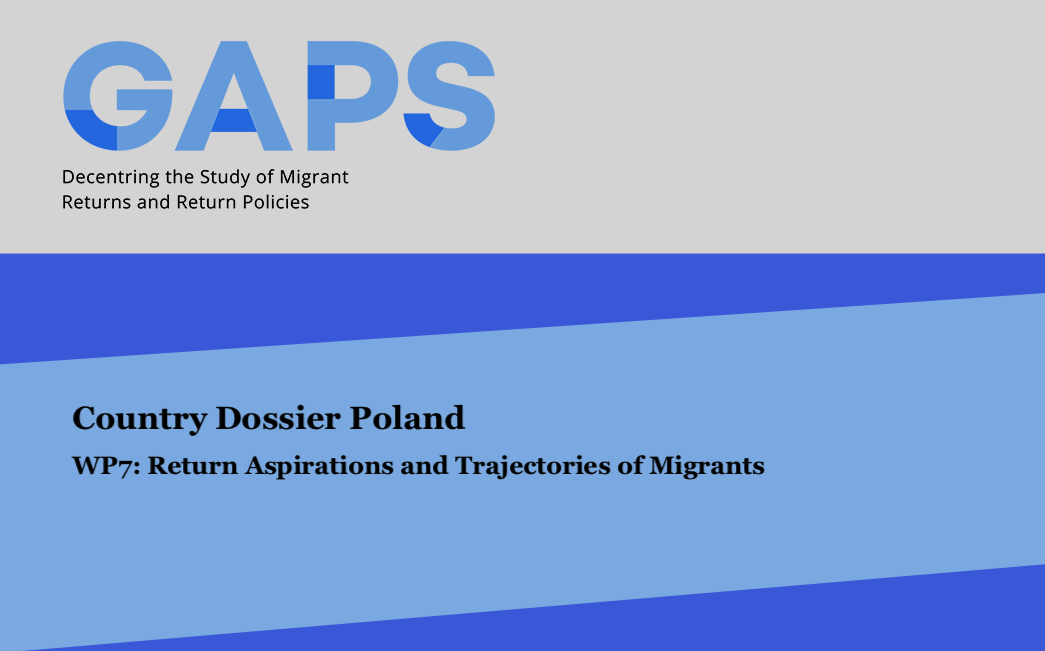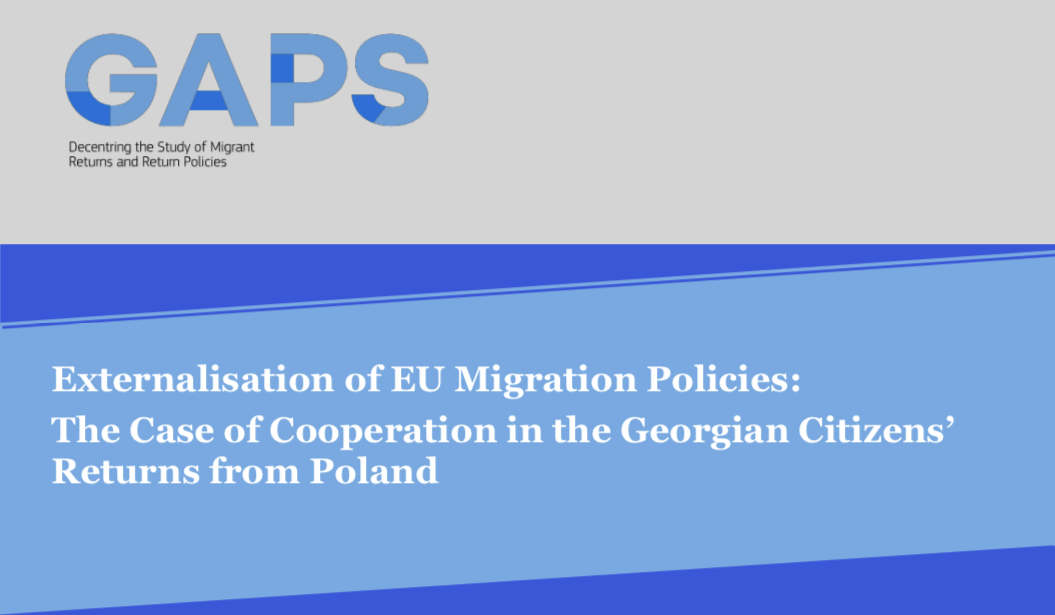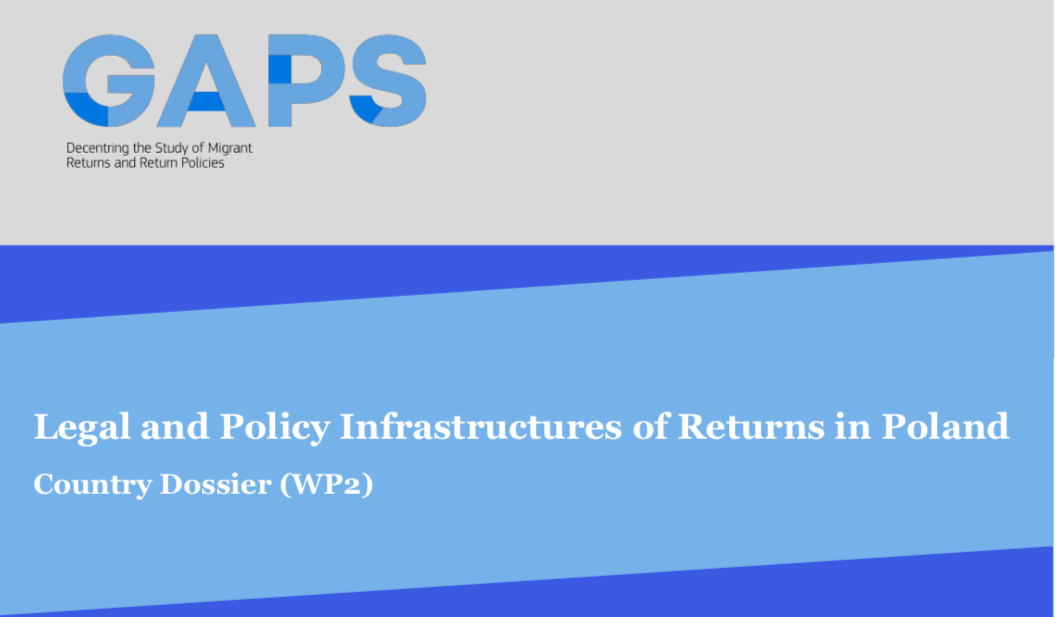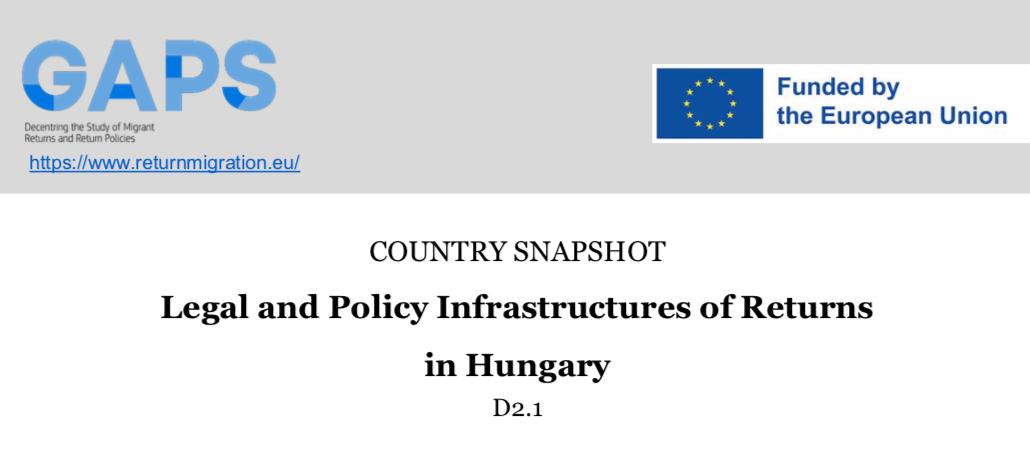Country Profile
GAPs Country Profile: Poland / Blog Posts
Externalisation of the EU Migration Policies: The Case of Cooperation in the Returns of Georgian Citizens
by: Mateusz Krępa, Marta Pachocka, Anna Trylińska, Tomasz Sieniow | University of Warsaw
The EU’s policy on migration is focused on efforts to effectively return migrants ordered to leave and this policy remains a priority for the Member States’ practices regarding migratory issues. However, the number of migrants returned is much lower than the figures of those ordered to leave…
Can an effective return policy go hand in hand with respecting migrants’ rights?
by: Anna Trylińska, Mateusz Krępa, Marta Pachocka, Tomasz Sieniow | University of Warsaw
The rights of foreigners have been drastically limited in Poland since 2021, along with the humanitarian crisis on the Polish-Belarusian border. Further, Poland has very effective enforcement of return decisions (77% for the period of 2022 and Q1-3 of 2023), according to data provided by Eurostat…
Immigration to Poland as part of the political game
by: Dominik Wach, UW | Mateusz Krępa, UW
Issues related to immigration and integration of foreigners in Poland for years have not been the subject of much public debate. Until the election campaign of the second half of 2015, the topic was dealt with by a narrow circle of experts and academics, and the media and policymakers were basically uninterested in these issues. As it turns out, it took less than a decade for the issues of immigration, integration or multiculturalism to become one of the main topics igniting the public and eagerly used by politicians to fight other factions. First, the topic of migration began to be used by the right-wing Law and Justice (PiS) party during the 2015 presidential and parliamentary campaigns. A sense of insecurity was built up in society in the face of the migration crisis of that time. Although the aforementioned crisis did not affect Poland…
GAPs Country Profile: Poland / Publications
The report presents findings on migration trajectories of various categories of migrants in Poland. The research focused on return as a result of a given person’s experience and aspirations. The primary data were obtained through qualitative analysis of 31 individual in-depth interviews with migrants. The study draws on a critical approach to migration, assuming a continuum of coercion in different types of returns. It assumes that coercion varies depending on the personal situation of each migrant and the way state institutions apply policy. It is not necessarily reflected straightforwardly by the name of a legal category of return, such as ‘voluntary’ returns. The report starts with laying down the context of migration to Poland in terms of policies and their application.
In the report, four categories of trajectories are identified and developed, taking into account agency in the very act of migration, the experience of integration, and the plans and aspirations concerning return or further mobility. The following categories are differentiated: ‘planning settlers’, ‘planning nomads’, ‘spontaneous settlers’, and ‘spontaneous nomads’. In conclusion…
Migration remains an essential factor in the dynamics of EU politics. This working paper aims to broaden our understanding of the cooperation mechanism between the EU and Georgia in the context of the EU’s externalisation of migration policies. We focus on the EU Member State – Poland, the sending country, and Georgia, the country receiving returnees, one of six Eastern Partnership members. We pay particular attention to the returns of Georgian citizens from Poland (with various levels of coercion), as they represent one of the
largest groups of returned foreigners under Poland’s return practices. At the same time, Georgia remains a country strongly committed to integration with the EU structures. The paper draws on the qualitative material and data collected during fieldwork on Georgia from February to May 2024. The main part of the research was carried out on-site in Tbilisi. Follow-up interviews were conducted in Poland, mainly online. We conducted 25 individual in-depth interviews with representatives of international organisations, public institutions,
non-governmental organisations, and other experts who had knowledge about returns to Georgia and the reintegration of Georgian citizens. This work was supplemented with desk research regarding the legal framework and return infrastructure in Poland and Georgia and the reintegration framework in the latter. The results reveal the untapped potential of the cooperation between Polish and Georgian institutions, which could make the returns more satisfying for migrants and – consequently – more efficient for the EU policies.
In this report on Poland’s return policy, developed under Horizon Europe GAPs project, we analysed the legal, institutional, and infrastructure framework of the country’s return procedures for foreigners covering the years 2015-2023 (in some cases also early 2024). We also included selected statistics regarding the scope of this report. The report discusses the relationship of EU law to Polish law, Poland’s compliance with EU law and the implementation of judgments of European tribunals. Included also is a reference to cooperation between national institutions and organisations, as well as international cooperation.
This country snapshot provides information about the legal and political frameworks governing return and readmission agreements. It explores how these agreements function within the broader context of the country's migration policies and analyzes the key actors involved in their negotiation and implementation.
Work Package 2 (WP2) of the GAPs Project (Legal and Policy Frameworks of Returns in the EU) focuses on the legal, institutional and policy frameworks regarding the return and readmission policies at the EU level and in the five selected EU member consortium countries (Sweden, Poland, Germany, Greece, Netherlands) as well as the related gaps. Three country snapshots of the non-consortium EU Member States (Italy, France, and Hungary) are also provided.
This comparative report is based on the examination and comparison of the return policies of the selected countries through the country dossiers that are provided as annexes of this report (see other reports in GAPs-WP2 publication series). It aims to identify the commonalities and variances within their legal and policy structures concerning the return of migrants against the backdrop of overarching EU directives, particularly the EU Return Directive. This exploration includes a comprehensive…


